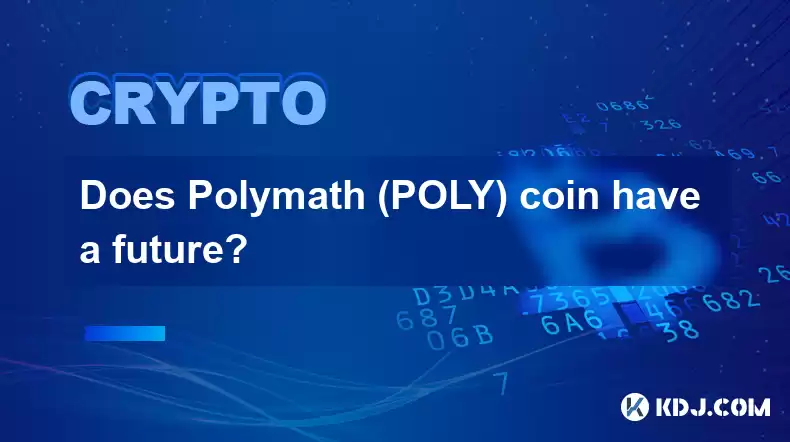-
 Bitcoin
Bitcoin $118800
-2.24% -
 Ethereum
Ethereum $4638
-1.08% -
 XRP
XRP $3.117
-5.42% -
 Tether USDt
Tether USDt $1.000
0.03% -
 BNB
BNB $842.6
-1.25% -
 Solana
Solana $195.3
-3.90% -
 USDC
USDC $0.9999
0.02% -
 Dogecoin
Dogecoin $0.2273
-7.27% -
 TRON
TRON $0.3606
0.62% -
 Cardano
Cardano $0.9319
5.60% -
 Chainlink
Chainlink $22.88
-3.66% -
 Hyperliquid
Hyperliquid $45.85
-1.58% -
 Sui
Sui $3.822
-5.16% -
 Stellar
Stellar $0.4276
-6.12% -
 Bitcoin Cash
Bitcoin Cash $594.2
-4.71% -
 Ethena USDe
Ethena USDe $1.000
-0.04% -
 Hedera
Hedera $0.2535
-4.61% -
 Avalanche
Avalanche $24.00
-4.86% -
 Litecoin
Litecoin $123.3
-6.62% -
 Toncoin
Toncoin $3.418
-1.73% -
 UNUS SED LEO
UNUS SED LEO $9.269
0.33% -
 Shiba Inu
Shiba Inu $0.00001307
-5.48% -
 Uniswap
Uniswap $11.04
-9.22% -
 Polkadot
Polkadot $4.047
-5.38% -
 OKB
OKB $101.3
-4.42% -
 Dai
Dai $0.9999
0.01% -
 Bitget Token
Bitget Token $4.612
-4.26% -
 Cronos
Cronos $0.1543
-8.52% -
 Aave
Aave $317.3
-3.42% -
 Ethena
Ethena $0.7275
-8.03%
Does Polymath (POLY) coin have a future?
Polymath's platform bridges the gap between traditional finance and digital assets, offering regulatory compliance, ease of use, and promising future prospects for tokenized securities issuance.
Dec 25, 2024 at 08:24 pm

Key Points:
- Polymath's innovative role as a platform for tokenized securities issuance
- The platform's strengths, including its regulatory compliance and ease of use
- POLY's positive market performance and increasing adoption
- Potential challenges facing Polymath and the cryptocurrency market as a whole
- Detailed analysis of POLY's future prospects and potential value drivers
- Comprehensive FAQs addressing common inquiries about Polymath and its ecosystem
Detailed Analysis of Polymath's Future Prospects
Polymath (POLY) is a blockchain-based platform that enables the issuance and management of tokenized securities. The platform aims to revolutionize the traditional securities market by providing a secure, efficient, and cost-effective way to create and trade digital assets.
Platform Strengths
- Regulatory Compliance: Polymath places a strong emphasis on regulatory compliance, ensuring that tokenized securities issued on its platform meet all applicable legal requirements.
- Ease of Use: The platform's user-friendly interface and intuitive tools make it accessible to a wide range of issuers, from startups to established corporations.
- Proven Track Record: Polymath has a proven track record of success, with over 200 tokenized securities issued on its platform to date.
Market Performance and Adoption
POLY's market performance has been positive, with a steady increase in its value over the past year. The increasing adoption of Polymath's platform by issuers is a testament to its growing popularity and utility.
Potential Challenges
- Regulatory Uncertainty: The regulatory landscape for cryptocurrencies and tokenized securities is still evolving, which could create uncertainty for issuers and investors.
- Market Volatility: The cryptocurrency market is known for its volatility, which can impact the value of POLY and other crypto assets.
- Competition: Polymath faces competition from other platforms offering similar services, such as Securitize and TokenSoft.
Future Prospects
Despite these challenges, Polymath's future prospects remain promising. The platform's strong regulatory focus, ease of use, and proven track record position it well to capitalize on the growing demand for tokenized securities.
- Increased Institutional Adoption: Institutional investors are increasingly looking to invest in crypto assets, including tokenized securities. Polymath's platform could facilitate this trend.
- Expansion into New Geographic Markets: Polymath is actively expanding into new geographic markets, such as Europe and Asia, providing access to a wider pool of issuers and investors.
- Development of New Products and Features: The Polymath team is continuously working on developing new products and features to enhance the platform's capabilities and meet changing market needs.
FAQs
- What is the role of POLY in the Polymath ecosystem?
POLY is the native token of the Polymath platform. It is used to pay transaction fees, incentivize users to participate in the network, and govern the platform's future development. - How does Polymath address regulatory concerns?
Polymath works closely with regulators worldwide to ensure that its platform and tokenized securities meet all applicable legal requirements. The platform also provides tools and resources to help issuers navigate the complex regulatory landscape. - What is the value proposition of investing in POLY?
Investing in POLY provides potential returns from the growth and adoption of the Polymath platform. Holders of POLY also have governance rights over the platform's future development.
Disclaimer:info@kdj.com
The information provided is not trading advice. kdj.com does not assume any responsibility for any investments made based on the information provided in this article. Cryptocurrencies are highly volatile and it is highly recommended that you invest with caution after thorough research!
If you believe that the content used on this website infringes your copyright, please contact us immediately (info@kdj.com) and we will delete it promptly.
- Kazakhstan's Crypto Leap: Bitcoin ETF and Central Asia's Digital Finance Future
- 2025-08-13 12:45:19
- BlockDAG Presale Blazes Past $371M: Fundraising Frenzy Fuels Crypto Sensation
- 2025-08-13 13:05:21
- Meme Coins: Chasing the 2025 Surge – Which Will Moonshot?
- 2025-08-13 10:25:23
- Bitcoin's Wild Ride: Rally, Pullback, and What's Next
- 2025-08-13 10:25:23
- Bitcoin, Bitmax, and Institutional Demand: A New Era of Crypto Investment
- 2025-08-13 10:45:12
- Solana, ROAM, and Airdrops: What's the Buzz in 2025?
- 2025-08-13 11:35:13
Related knowledge

How to purchase Aragon (ANT)?
Aug 09,2025 at 11:56pm
Understanding Aragon (ANT) and Its PurposeAragon (ANT) is a decentralized governance token that powers the Aragon Network, a platform built on the Eth...

Where to trade Band Protocol (BAND)?
Aug 10,2025 at 11:36pm
Understanding the Role of Private Keys in Cryptocurrency WalletsIn the world of cryptocurrency, a private key is one of the most critical components o...

What is the most secure way to buy Ocean Protocol (OCEAN)?
Aug 10,2025 at 01:01pm
Understanding Ocean Protocol (OCEAN) and Its EcosystemOcean Protocol (OCEAN) is a decentralized data exchange platform built on blockchain technology,...

How to invest in Kyber Network Crystal v2 (KNC)?
Aug 12,2025 at 05:21pm
Understanding Kyber Network Crystal v2 (KNC)Kyber Network is a decentralized liquidity hub built on the Ethereum blockchain that enables instant token...

Where can I buy UMA (UMA)?
Aug 07,2025 at 06:42pm
Understanding UMA and Its Role in Decentralized FinanceUMA (Universal Market Access) is an Ethereum-based decentralized finance (DeFi) protocol design...

How to sell my Ren (REN) tokens?
Aug 13,2025 at 11:35am
Understanding REN Tokens and Their Role in Decentralized FinanceREN is an ERC-20 token that powers the Ren protocol, a decentralized interoperability ...

How to purchase Aragon (ANT)?
Aug 09,2025 at 11:56pm
Understanding Aragon (ANT) and Its PurposeAragon (ANT) is a decentralized governance token that powers the Aragon Network, a platform built on the Eth...

Where to trade Band Protocol (BAND)?
Aug 10,2025 at 11:36pm
Understanding the Role of Private Keys in Cryptocurrency WalletsIn the world of cryptocurrency, a private key is one of the most critical components o...

What is the most secure way to buy Ocean Protocol (OCEAN)?
Aug 10,2025 at 01:01pm
Understanding Ocean Protocol (OCEAN) and Its EcosystemOcean Protocol (OCEAN) is a decentralized data exchange platform built on blockchain technology,...

How to invest in Kyber Network Crystal v2 (KNC)?
Aug 12,2025 at 05:21pm
Understanding Kyber Network Crystal v2 (KNC)Kyber Network is a decentralized liquidity hub built on the Ethereum blockchain that enables instant token...

Where can I buy UMA (UMA)?
Aug 07,2025 at 06:42pm
Understanding UMA and Its Role in Decentralized FinanceUMA (Universal Market Access) is an Ethereum-based decentralized finance (DeFi) protocol design...

How to sell my Ren (REN) tokens?
Aug 13,2025 at 11:35am
Understanding REN Tokens and Their Role in Decentralized FinanceREN is an ERC-20 token that powers the Ren protocol, a decentralized interoperability ...
See all articles

























































































